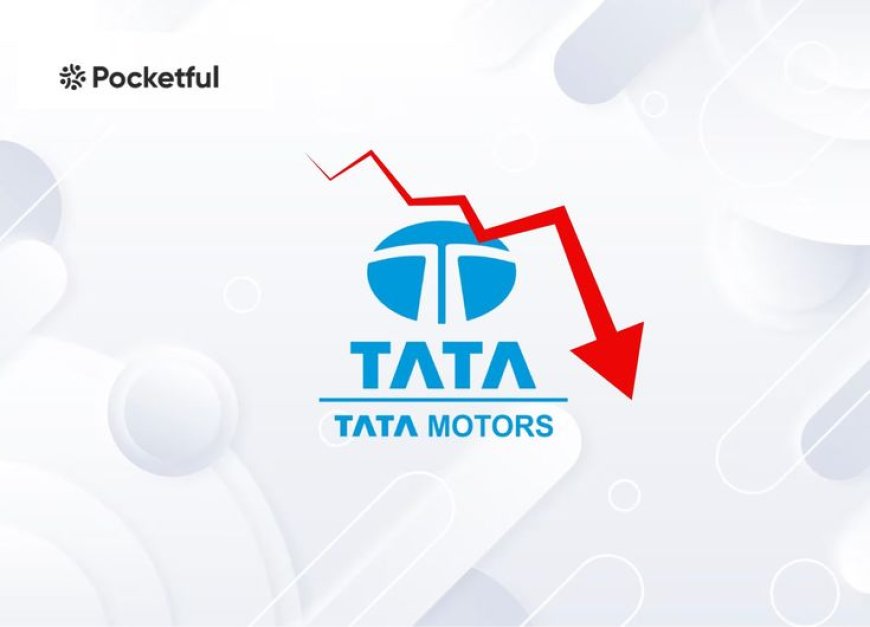Tata Motors Demerger No Capital Gains Tax on Receipt but Be Careful When You Sell
Tata Motors demerger offers no capital gains tax on receipt, but selling shares later may impact taxes. Key benefits & risks explained.

Introduction
Tata Motors, one of India’s leading automobile giants, has recently announced its demerger move, which has created ripples in the financial and stock market world. The company clarified that there would be no capital gains tax liability upon receiving shares after the demerger, but investors must tread cautiously when they sell those shares in the future. This development is seen as a strategic restructuring to unlock value for shareholders, but it also brings with it several critical implications.
History and Background
Tata Motors has a long legacy of leading India’s automobile industry. The demerger plan is part of its strategy to segregate different verticals, such as commercial vehicles, passenger cars, and electric mobility, allowing each unit to operate independently and attract sector-specific investors. The move aims to bring transparency, create operational efficiency, and help Tata Motors strengthen its position in both domestic and global markets.
Why Tata Motors Demerger: No Capital Gains Tax on Receipt but Be Careful When You Sell?
-
No capital gains tax on receipt: As per the Income Tax Act, demergers are not considered taxable events for shareholders when they receive new shares in exchange for existing ones.
-
Tax liability arises at sale: When investors sell these newly received shares, the cost of acquisition and holding period become critical factors in determining tax liability.
-
Reason for caution: Depending on the valuation assigned to demerged entities, future gains might attract higher tax outflows if not carefully planned.
Why Tata Motors Share Value Reacted in Stock Market?
-
Investor confusion on valuations of the split entities.
-
Short-term selling pressure due to restructuring fears.
-
Market sentiments balancing optimism of value unlocking with tax and compliance clarity concerns.
Benefits of Tata Motors Demerger
-
Value unlocking – Separate entities can be valued independently, leading to better price discovery.
-
Sector-specific growth – Electric vehicles (EV) arm can attract ESG and green investors.
-
Operational focus – Independent boards and management for each unit.
-
No immediate tax liability – Shareholders aren’t taxed when they receive new shares.
Key Points
-
Demerger does not attract capital gains tax initially.
-
Tax impact arises only at the time of sale.
-
Fair market value allocation of cost is critical for tax calculations.
-
Short-term volatility in stock price is expected.
Drawbacks & Concerns
-
Complexity in determining cost of acquisition post-demerger.
-
Future tax liability might be higher if shares appreciate quickly.
-
Short-term stock market volatility could impact retail investors.
-
Compliance and restructuring costs for the company.
Latest Buzz & Updates
-
Analysts suggest that Tata Motors’ EV division could see huge investor inflows.
-
Retail investors are advised to hold shares long-term for maximum benefit.
-
Tax experts recommend carefully tracking cost basis for future tax planning.
Significance
The Tata Motors demerger is significant not just for shareholders but for India’s automobile and EV landscape. It represents a shift towards specialized, future-ready businesses. Moreover, the no immediate capital gains tax relief provides comfort to investors while underlining the need for prudent tax planning during eventual exits.
Advantages
-
Better investor clarity.
-
Tax-free receipt of new shares.
-
Potential for long-term wealth creation.
Disadvantages
-
Future tax liabilities could be heavy if not planned.
-
Market fluctuations in the short run.
-
Complexity in stock cost allocation.
Final Thoughts & Conclusion
The Tata Motors demerger stands as a bold strategic step toward long-term value creation. While no capital gains tax on receipt is a major relief for shareholders, investors should remain cautious about future tax obligations upon selling. For long-term holders, this could unlock substantial value, especially with Tata’s EV ambitions and global presence. However, short-term volatility and tax complexity may challenge retail investors. In conclusion, patience, financial planning, and tax awareness will be key to benefiting from this corporate restructuring.

 Ellofacts
Ellofacts 





